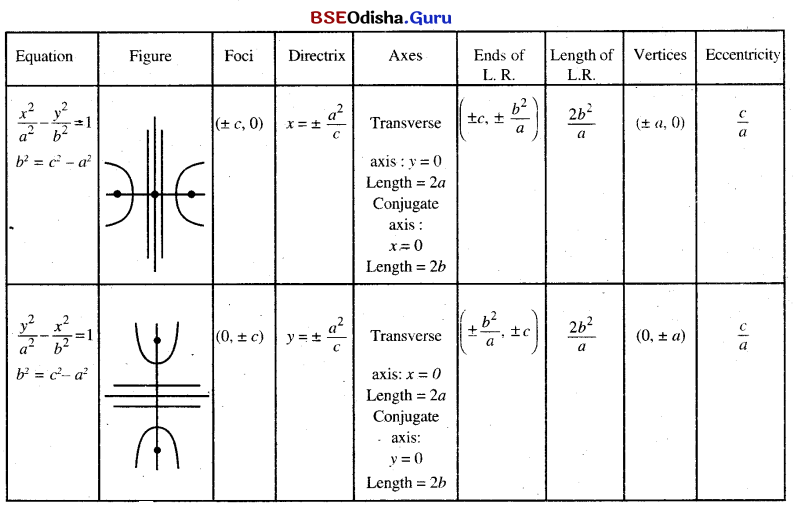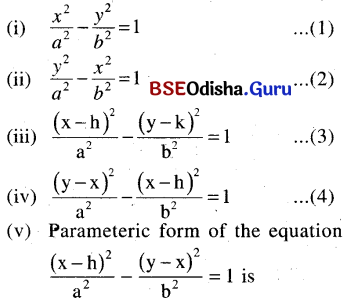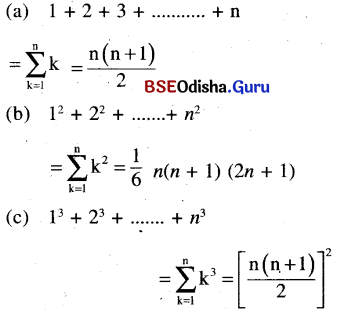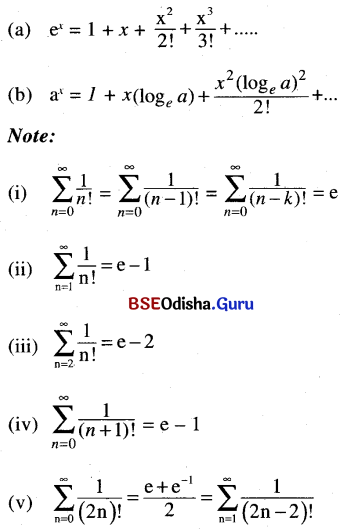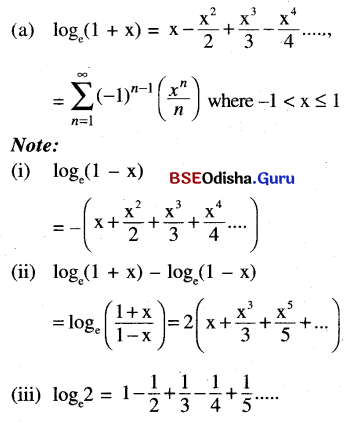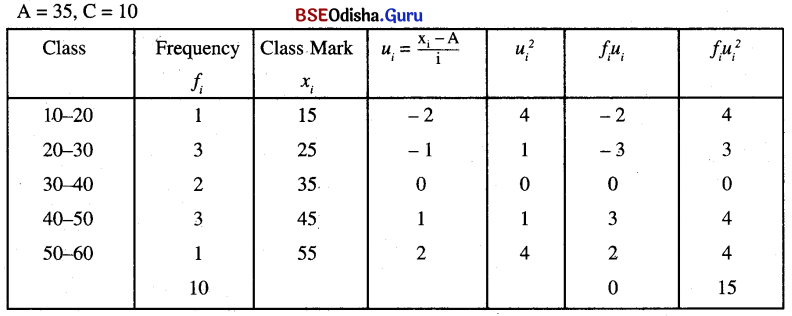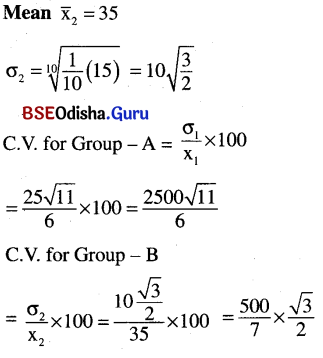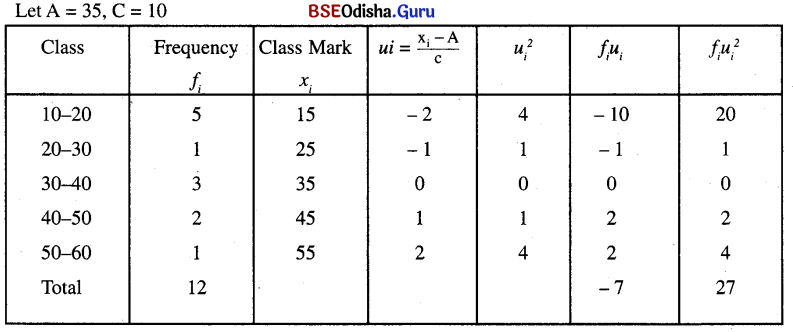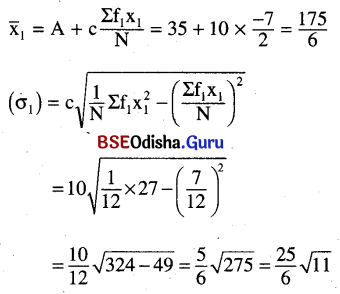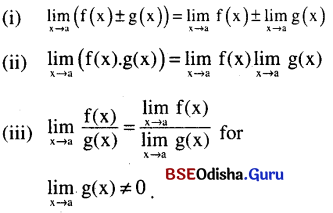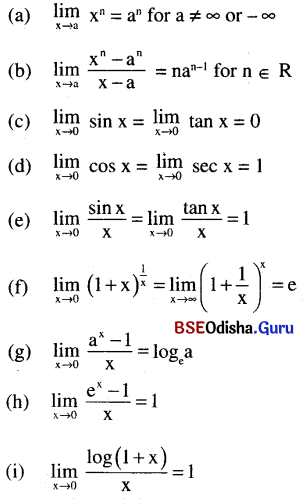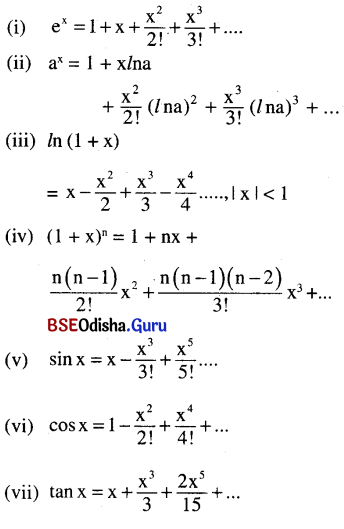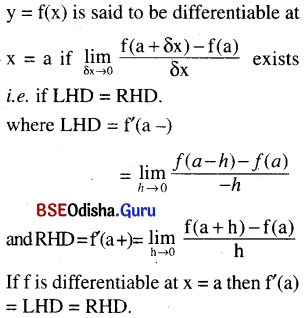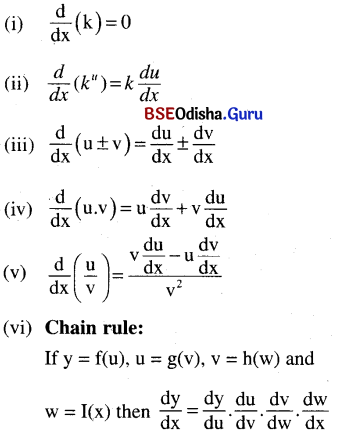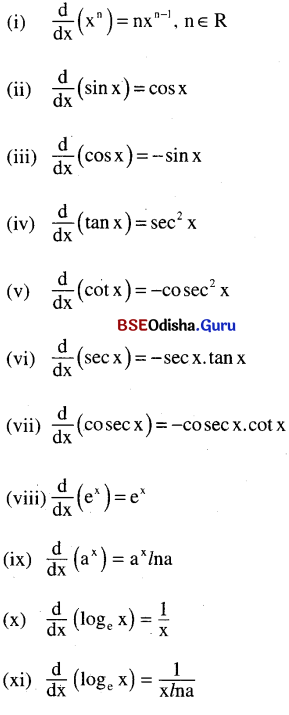Odisha State Board CHSE Odisha Class 11 Approaches to English Book 1 Solutions One-Act Plays Chapter 2 The Unexpected Textbook Activity Questions and Answers.
CHSE Odisha Class 11 Alternative English Solutions One-Act Plays Chapter 2 The Unexpected
Section-I
Questions For Discussion
Question 1.
What is the exciting piece of news Alec and Tom bring Mrs. Parker? How does Mrs. Parker react to it? How do Alec and Tom feel about the way she reacts to their information?
Answer:
The news that two convicts have escaped from prison cells has been brought to Mrs. Parker by Alec and. Tom. There is a sudden reaction in Mrs. Parker’s mind to have listened to their statement: The tea cozy she had in her hand dropped land she stood motionless. She became puzzled by the news.
Question 2.
Who is Joe? Why does he call at Mrs. Parker’s cottage? What is it about his manners that Tom and Alec object to? Would you say he is educated or uneducated?
Answer:
Joe Badger is a young man who says that he has just come to ask Mrs. Parker a few questions. He is on ‘.a helping mission to his constable uncle of the village. He calls Mrs. Parker to ask her a few questions as to the escape of the two criminals. Tom and Alec object to Joe’s calling them ‘kids’.Joe is not uneducated. He is not educated either. He says, “My education may not be so fine as yours (Tom’s), but he has been taking correspondence lessons from a school of detectives.
Question 3.
What makes Joe suspect Mrs. Parker’s activities? How does Mrs. Parker explain herself? Does Joe find her answers convincing? What does he threaten to do?
Answer:
Mrs. Parker’s living alone near the jail i.e. why she wants to be so private and keeping with her’ a Bentley sports car in an old shed where no one would be able to notice it makes Joe suspect Mrs. Parker’s activities. She explains that the sports car that Joe had seen belonged to her nephew. Joe does not find her answers convincing or satisfactory. He threatens her to get to the bottom of that.
Vocabulary
A. Say which parts of speech the following belong to:
luck, diurnal, fabulous
lie, velocity, ghost
look, vivacious, ghostly
last, violent, gullible
paper, write, gunpowder
pipe, belong, expertise
prologue, elope, expert
perseverance, conducive, exigency
cousin, catastrophic, jerk
callous, loathsome, jostle
cactus, logical, jump
curious,longevity, judicious
caricature, torrential, jeopardy
pen, tremendous, civilization
dirty, parsimonious, erosion
Answer:
luck – noun
look – verb, noun
paper – noun
prologue – noun
cousin – noun
cactus – noun
caricature – noun
duty – noun
velocity – noun
violent – adjective
belong – verb
conducive -adjective
parsimonious -adjective
catastrophic -adjective
loathsome -adjective
logical -adjective
longevity -noun
torrential -adjective
tremendous -adjective
fabulous – adjective
ghost – noun
ghostly – adjective
gullible – adjective
gunpowder – noun
expertise – noun
expert – adjective
exigency – noun
lie – verb, noun
last – adjective, adverb
pipe – noun
perseverance – noun
callus -adjective
curious – adjective
pen – noun
diurnal – adjective
vivacious -adjective
write – verb
elope – verb
erosion – noun
jerk – verb
jostle – verb
jump – verb
judicious – adjective
jeopardy – noun
civilization – noun
Section-II
Questions For Discussion
Question 1.
What is? Does the secret Mrs. Parker share with Alec and Tom? What was her object when she took the cottage? How does she propose to use the Bentley car? What is the real surname of Mrs. Parker?
Answer:
The secret which Mrs. Parker hares with Alec and Tom.Is that the convict’s none other than her son who had parted from her for years together? Her sole object in taking the cottage nearer to the jail was to help her sen escape from the jail. She proposed to make her son. escape in the Bentley car. The real name of Mrs. Parker is Mrs. Felton.
Question 2.
Why is Mrs. Parker reluctant to let Alec and Tom stay, with her?
Answer:
Mrs. Parker is reluctant to let Alec and Tom stay with her. She wants them to leave outright. Her son might get startled to see the strangers. He might not take them into confidence.
Question 3.
What does Mrs. Parker tell Joe about the ownership of the Bentley car? How does she explain her relationship with the convict? How does she explain her relationship with the convict? Does Joe believe her? Why do Tom and Joe fight?
Answer:
Mrs. Parker tells Joe that the Bentley car belonged to her nephew. She explains to him as to her relationship- with the convict that he was her nephew-who arrived from London that morning. Joe. does not believe her when Joe insisted that the convict’s clothes were hidden away in another room Which he wanted to search for. The convict asked him to get out of the house he was opposed. But he told that he was going to inform about it this constable under, and the occasion fighting started.
Vocabulary
Derive nouns from the following:
innocent, pitiable, kind
pretend, realize, probably
friendly, quick, melodramatic
clever, nervous, pleasant
suspect, monetary, narrate
circumstantial, frighten, good
monetary, expect, beautiful
difficult, dangerous, luxurious
remember, repeat, sorry
horrible, hopeful, systematic
Answer:
innocent – innocence
pretend – pretension/pretense
friendly – friendliness
clever – cleverness
suspect – suspicion
circumstantial – circumstances
monetary – money
difficult ‘ – difficulty
remember – remembrance
horrible – horror
pitiable – pity
realize – realization
quick ‘ – quickness
nervous – nerve
momentary – moment
frighten – fright
expect – expectation
dangerous – danger
repeat- repetition
hopeful- hope
kind- kindness
probably- probability
melodramatic- melodrama
pleasant- pleasure
narrate- narration
good- goodness
beautiful- beauty
luxurious- luxury
sorry – sorrow
systematic – system
Section-III
Questions For Discussion
Question 1.
What does the warder collect from Mrs. Parker’s house as pieces? evidence against the convict? How does he propose to use the car? What purpose do they really serve?
Answer:
The warder collects the prison clothes and a parcel in Mrs. Parker’s house as evidence against the convict. He proposes to take the convict in the Bentley sports car as evidence of his escaping in it. They really serve the purpose of escaping.
Question 2.
What is the password Joe tells the warder? How was Joe able to get it ? … it’s safe with me, he claims, Do you agree with him?
Answer:
The password is “Regent” which Joe tells the warder. Joe was able to get it from his Uncle, the constable of the village. He says that it is safe with him which gives a false sense of safety. It’s a false notion he carries.
Question 3.
What, as Mrs. Parker says, cream of joke? Who really are the convict and the warder? How does Joe unwillingly help them escape to safety?
Answer:
The cream of the joke is that Joe never believes any of his uncle’s secrets, but he told Roger the one thing he needed to know. He told him the password that will get him safely to freedom. Now, all she has to do is join him, and they are going to Australia to start all over again. The warder is Mrs. Parker’s .son Roger himself and the convict happens to be a stranger whom Mrs. Parker did not know. Joe does not know the secret that the warder is Roger himself whom he unwillingly tells the password “Regent” which Roger used in different situations and places and safely escaped as the roads are tightly watched.
Question 4.
“Where women are concerned, the unexpected always happens” who says this? How many times has this statement been repeated in The play? How is this statement relevant to the play?
Answer:
Tom repeatedly utters that in the context, women are concerned with unexpected happeningsÿ things become unpredictable statement “where women are Concerned, the unexpected always happens”. This statement is said by his father. The repetition takes place’ thrice in the play. This statement is relevant.
Composition
Question 1.
Who do you think is the central character of the play? Why? Unexpected” is written by Alia Adkins, an
Answer:
The one-act play “The eminent and outstanding playwright of our time. The playwright is a superb and excellent master in the art of .depicting attractive and fascinating characters. They are lovely, real, and lively in nature. Such a typical character is Mrs. Parker who is really considered the pivotal character of the play. She drags our attention automatically with a tint of rare intelligence and wit. In fact, a play has’ kaleidoscopic characters who cross and recross the stage throughout. The protagonist figure acts like the linchpin around whom the other characters revolve. In the play, “The Unexpected Mrs. Parker happens to be the central and pivotal character who dominates the plot of the play from the beginning to the end. She is the only female character whose importance is realized in every vein of the play.
The play without Mrs. Parker is like the proverbial play if we eliminate Mrs. Parker from the play, it becomes a meaningless piece of nothing else, However, the play opens with Mrs. Parker and the two young men who are found in the former’s house. He has been staying in a house close to the jail. It is because his innocent son has’ been imprisoned with no “Hamlet”.without the prince of Denmark. If the fault of his. Mrs. Parker has a tendency to help her son escape from jail. But she wants that all such things need be done secretly. She even does not take the young men into confidence lest her secret design should be exposed. As her son is likely to arrive at any time after his escape from the jail, she does not want that the two young boys should know about it. But after a prolonged talk, she confides in them and reveals her identity and that of her son.
She says that she is not Mrs. Parker, but she is Mrs. Felton and her son Roger is in jail. She says, “Oh, my dear boys, I’ am trusting you, as I have never trusted anyone”. She had only one object when she took the cottage and that is to help Roger to escape. She has kept the car ready for use ever since she came there. Moreover, there takes place a hot discussion between Joe and Mrs. Parker, When Joe says that he has seen a convict enter her house she pretends not to have seen anybody. When insisted she tells that it is her nephew from London who has arrived in the morning.
She performs a successful part in making the boy escape from jail. She is a courageous lady who makes all kinds of arrangements for escape. Her dialogue reveals the crux of the plot Joe has told the password “Regent” which would help his escape and baffle the people. It is Roger who had disguised himself as the warder. Actually, Mrs, Parker is the running thread in the play. She dominates the whole labyrinth of the plot.
The core sentence “Where women are concerned, the unexpected always happens” is appropriately justified by her activities in the play. Her involvement marks an anÿeye-catching fact in a beautiful way. Her importance in the play can not be ruled out. As a matter of fact, judging from all respects, Mrs. Parker is truly the central and pivotal character of the play. She is, in fact, – a courageous and intelligent lady. She is a superb and fantastic creation by the playwright. On the whole, her activities are inspiring, thought-provoking, elevating and heart-enduring
Question 2.
Can you suggest another title for the play? Justify your choice of the proposed alternative.
Answer:
The one-act play “The Unexpected” is, undoubtedly, the best masterpiece of Alia Adkins, a prominent and outstanding playwright of this era. The playwright has superb mystery in providing apt and suitable titles to the plays. Adkins’ plays are fascinating, interesting, alluring, and heart-enduring. The way Adkins deals with the women characters with the appropriate titles is really magnificent and fantastic.
In fact, the title is the crown piece of any work of art. The caption should be eye-catching and significant. It should be apt and suggestive. It is like a signboard that speaks out what is usually contained inside. It is rather suggestive and expressive. The file of this discussed play, “The Unexpected” is aptly justified in this real sense- of the term. This title is so named because, “where a woman is concerned, the unexpected, always happens”. However, an alternative title for the play may be subscribed to the play.
The alternative title may be “When women are involved” However, the involvement of women in different matters ultimately results in Here, Mrs. Parker being the representative of teeming millions of women who get themselves involved in. several things and mince matters like anything. Mrs. Parker is seen taking a house near the jail. Two young men named Alec and Tom get in. Mrs. Parker at the outset declines to let them know why she is insisting on living in that cottage, But very soon she takes them into confidence and tells everything she has in her mind. She is not Mrs. Parker.
She is actually Mrs. Felton who has taken the house near the jail to help her innocent son Roger escape from die jail, The two young men promise to help her and her son. But another young boy Joe appears at that very moment and makes the matter unexpected tilings. They make a fuss about things. very complicated. On the other hand, Joe wishes to bring to the limelight die intention and project of Mrs. Parker. He makes an analytical sketch of Mrs. Parker having a Bentley sports car. and why she lives near the jail.
The two convicts have escaped from the jail and the warder is after them. Mrs. Parker has made all possible preparations to make his son escape in the daylight. A young man enters Mrs. Parker’s house with the convict suit in the presence of Alec and Tom. Mrs. Parker remains silent. Joe comes in again and declares that he has seen the convict enter the house. In the meanwhile, the warder enters and Joe says,that there is a convict and his dress.
The warder seizes the prison clothes and arrests the young men who have been there. They leave the place in the Bentley car with the password “Regent” from Joe who has got it from his constable uncle. In the end, it is seen that the warder is none other than Mrs. Parker’s son. As a matter of fact, the title of die play is apt and suggestive. From the above description, it is very much clear that the central and pivotal. the character Mrs. Parker is very much concerned with the title of the play. The title becomes meaningless if we eliminate Mrs. Parker from the play. On the whole, the title is interesting, thought-provoking, and elevating.
Question 3.
Sketch the character of Mrs. Parker.
Answer:
Actually, the one-act play “The Unexpected” is, indeed the best typical masterpiece of Alia Adkins, a popular and outstanding playwright of the modern predicament. The playwright is undoubtedly a superb and excellent master in the art of characterization. Adkins’ dealing with lively women characters is really very fantastic. Adkins’ characters are courageous, clever, shrewd, and lively. Such a pivotal character is Mrs. Parker in this discussion play. However, a character is his or her own destiny. One can make or mar one’s character. Drama is a literary device that makes use of characters who speak their mind through dialogue.
The one-act play “The Unexpected” by Alia Adkins presents a volley of characters who cross and recross the stage. Among all the characters in the play, Mrs. Parker rules supreme. She is the principal and pivotal character around whom all the characters revolve cyclically. A close study of her character has become the necessity of the hour. Of course, MTS. Parker acts as a loving mother. She is not able, to stand the imprisonment of her innocent son. She makes all possible efforts to make her son escape from jail.
As the first step towards escape, she takes a house close to the jail. This intensifies the suspicion of the people like Joe. He enters Mrs. Parker’s house and cross-examines her from different angles. But this does not exasperate her. She makes a patient approach for achieving her greater interest. She supplicates to Alec and Tom in order to leave the place instantly. But they do not leave. Again, Mrs. Parker is a courageous lady. She handles the situation tactfully. She is compelled to tell Alec and Tom and begs them to help her in the mission. They extend helping hands. They are in the house. Joe comes back again and declares that he has seen a convict enter the house.
A young man who has just arrived and whom Joe has thought of being the convict has changed into some dress given by Mrs, Parker. In the meanwhile, the warder appears on the scene. Joe tells that the escaped convict is there. He finds the prison clothes and arrests the young man. Joe goes with them. Technically, the warded collects the password from Joe, because all the roads are strictly watched, They go away in the Bentley car.
The warder is none other than Roger, Mrs. Parker’s son who gets escaped safely with the password and the Bentley car. However, Mrs, Parker is shrewd and clever enough in tackling situations properly. She controls the two young boys Alec and Tom who play according to her tune. Joe is also carefully managed so that he can not get a little bit of an idea about the smooth escape. Alec and Tom get angry with Joe and rise up to thrash him like anything, but she tactfully forbids them. Joe is also technically managed when he comes proudly to make an investigatory approach in order to get a job.
Everybody is properly manipulated and has a presence of mind and unparalleled sly, wit. She administered by means of Mrs. Parker’s dominates over the play and the play without her falls into sheer nonsense. As a matter of fact, Mrs. Parker is actually the central and pivotal character in the play. She is a superb and fantastic representation of a courageous and cunning woman in general. She is, indeed, Adkins’ best manifestation of a typical character. On the whole, the play is elevating, attractive, alluring, and heart-touching due to her extraordinary power of handling and tackling a critical situation.
Question 4.
Imagine that you are a news reporter working for a national English daily. Make a report on the escape of a hard-core criminal from the local prison and his subsequent arrest.
Answer:
Cuttack, 20 January: A hard: core unconscious by means of a chemical obtained criminal who has been involved in myriad antisocial activities and convicted in a court of law and sentenced life long rigorous imprisonment escaped from the Central Jail, Choudwar at 2 a.m. last night. He intoxicated the sentry of the jail and made him from his supporters through some secret deals and made him unconscious. He administered the same chemical to his convicts who went asleep. Availing himself of the privilege, he sneaked out of the jail and disappeared within a moment. The jail authorities have not become successful to trace the criminal 50 far. AH, the police stations have been informed to remain alert to nab the escaped convict.
Vocabulary
abandon, logical, animate
abound, measurable, coherent
absurd, mobile, combustible
halt, moderate, communicable
happy, moral, competent
allergic, movable, complete
catholic, mutable, comprehensible
hero, partial, conclusive
Jacobian, patient, consequent
national, penetrable, rational
thesis, pertinent, able
act, perceptible, attach
attack, ability, ascend
balance, accurate, encourage
legal, active, forward
legible, adaptable, increase
legitimate, adequate, and impart.
liberal, advisable, persuade
literate, addable, careful
Answer:
abandon- upkeep
abound- lack
absurd- right
halt- vacillate
happy- unhappy
allergic- antiallergic
Catholic- anti-catholic
hero- antihero/villain
Jacobian- anti-Jacobian .
national- antinational
thesis- antithesis
act- rest/counteract
balance- imbalance
legal- illegal
legible- illegible
legitimate – illegitimate
liberal – illiberal
illiterate – illiterate
logical, – illogical
measurable – immeasurable
mobile – immobile
moderate – immoderate
moral – immoral
movable – immovable
mutable – immutable
partial – impartial
patient – impatient
penetrable – impenetrable
pertinent – impertinent
perceptible – imperceptible
ability – inability
accurate – inaccurate
active – inactive
adoptable -inadoptable
adequate – inadequate
advisable – inadvisable
aidable – inaidable
animate – inanimate
coherent – incoherent
combustible – incombustible
communicable – incommunicable
competent – incompetent
complete – incomplete
comprehensible – incomprehensible
conclusive – inconclusive
Consequent – inconsequent
rational – irrational
able – unable
attach- detach
ascend – descend
encourage – discourage
forward-backward
increase – decrease
impart – take
persuade – dissuade
careful – careless
The Unexpected Summary in English
Section-I
Pre-reading Activity :
Question 1.
What kind of movie/stage interests you most? Do you like viewing suspense movies/dramas? Can you name some of the elements that go with a suspense play?
Question 2.
Here is a gripping suspense play, “the unexpected by Alla Adkins? a British playwright what do you think this play going to be about?
Focussing Questions
As you read section 1 of the play, try to find answers to the following questions:
Question 1
What would you say about the setting of the play? Is it urban or rural? How about the weather? Is it pleasant or gloomy?
Question 2.
What makes Joe suspect the activities of Mrs. Parker? Characters in the Play
1. Mrs. Parker
2. Alec
3. Tom
41 Joe Badger
5. f Convict’
6. Warder
Setting
A room in a lonely cottage on Dartmoor, The room is simply furnished. Table (set for tea) down R, C. Armchair down L.C. Door up R. Door up L. At the rise of the curtain, Mrs. Parker is discovered at the table preparing tea. Knock at door L. Mrs. Parker answers it. Enter Alec and Tom
Gist
Paragraphs: 1-7
Mrs. Parker greets Alec and Tom and says that she had not expected them to see that afternoon. Alec replies that they had to cycle over to see her. He also says that they have brought her an exciting piece of news. She asked what the excitement was. It is that the two convicts have escaped from the prison that afternoon. Listening to this Mrs. Parker drops the tea cozy in her hand and remains motionless. Alec makes it clear that they have got away from working and going about it. half an hour before. They are believed to be somewhere on the moors. He asks if they have frightened her. Tom assures that there is nothing to be scared of because the convicts are not likely to come that way.
Paragraphs: 8-10
Recovering from her tension, Mrs. P&rker says that is right. She says that she has been thinking of me. She advises them to start back for the village as soon as they have tea because their mother will be worried about their life if they are not home before long. In the absence of Mrs. Parker, Alec says why she had been a bit nervous about a conflict. She has lived alone in this cottage for the last six months and has never shown the slightest fear of tramps or of anything else for that matter, but she has become as frightened as a rabbit. Tom recites his father’s statement, “Where women are concerned, the unexpected always happens.”
Paragraphs: 11-28
is Joe Badger. He says that he has come to see Mrs. Parker. He also asks what the two kids have been doing there. They object to the There is another knock at the door. It word ‘kids’. Joe tells them that a couple of convicts are prowling about in the vicinity. Mrs. Parker enters saying why, Joe! What are you doing here on such an evening, Joe has just come to ask a few questions to Mrs. Parker. It is because he has to help his constable uncle in the village. Mrs. Parker offers him tea which he declines politely. He starts that two desperate criminals ready to murder everybody if they get the chance. He has been taking correspondence lessons from a school of detectives. He asks why a lady should like to live alone in a place like that.
Paragraphs: 29-36
Mrs. Parker is obviously startled. Joe also continued why she should live as near to the prison as she possibly can. Mrs. Parker asks why he asks her such questions. Joe calmly replies that it is because she has been hearing things down in the village. He tells her that she should not think that he is not making any accusations against her. Mrs. Parker says that thanks need to be given to the police to mind their own business. Joe asks her why she is having with her a Bentley sports car hidden away in an old shed where no one is likely to notice it. Thoroughly alarmed asks him how dare he spy on her like that. As his uncle is the constable and I want to join the force myself. It is his business; to find out things. Mrs. Parker says that Joe must leave the house at once before any unpleasant situation takes place.
Paragraph: 37.
Joe warns her that he is leaving but he must go to the bottom of things. She replies that he will get to the bottom of the duck pond if he does not clear out quickly Joe leaves. She comes forward saying that he is going to make a great deal of trouble for her. Alec asks why she has never told them so far that she has a Bentley sports car kept hidden from view. It is because they might have worried her to drive it. She demanded them to leave immediately. She tells them if they promise her “that you will never repeat what I am going to tell”. They promised
Analytical Outlines :
- Mrs. Parker greets Alec and Tom.
- She has. not expecting them to see it that afternoon.
- Alec replies that they have to cycle over to see her.
- He also says her that they have brought her an exciting piece of news.
- She wanted to know what it was.
- The two convicts escaped from the prison that afternoon.
- Listening to this, Mrs. Parker drops the tea cozy from her hand.
- She also remains motionless,
- Alec makes it clear.
- They have got away from working about half an hour before.
- They are believed to be somewhere on the moors.
- He asks if they have frightened her.
- Tom assures that there is nothing to be worried about.
- Because the convicts do not come that
- Mrs. Parker recovers from tension.
- Mrs. Parker says it is the all right way.
- She says that she has been thinking of them.
- She advises them to go back to the
- They should go after taking the tea.
- Because their mother must be worried; about them.
- Again they are not home for a long time
- Alec says she has been a bit nervous:
- has lived alone in this cottage village.
- She has lived for the last six months.
- She has never shown the slightest fear of tramps.
- But now she has become as frightened as a rabbit.
- Tom recites his father’s statement.
- “Where women are concerned, the unexpected always happens.”
- There is. another knock at the door.
- It is Joe Badger.
- He has come to see Mrs. Parker.
- He asks what the two kids have been doing there.
- They object to the word ‘kids’.
- Joe tells that a couple of victims are prowling about in the vicinity.
- Mrs. Parker enters saying why.
- She says what they are doing there- on such an evening.
- Joe has just come to ask her a few questions.
- He has to help his constable uncle in the village.
- Mrs. Parker offers him tea.
- He declines politely.
- He tells about the two desperate criminals,
- They can murder everybody by getting a chance.
- He has been taking correspondence lessons from a school of detectives.
- He asks why a lady should like to live
- Mrs. Parker says why he is asking such questions.
- Joe calmly replies that she has been things down in the village.
- He says her that he is not making any accusations against her.
- Mrs. Parker says police will mind their own business. alone in a place like that.
- Mrs. Parker is obviously startled.
- Joe also says why she should live as near to the prison.
- Joe asks her about her car.
- She- is going with a Bentley sports car.
- It is hidden away in an old shed.
- No one is likely to notice it there.
- Thoroughly alarmed asks him how dare he spy on her like that.
- His uncle is a constable.
- He wants to join the force himself.
- It is his business to find out things.
- Mrs. Parker says that Joe must leave the house at once.
- He should leave before any unpleasant situation takes place.
- Joe warns her that- he is leaving.
- But he must go into the bottom of tilings.
- He should get to the bottom of the duck pond.
- Then Joe leaves,
- She says that he is going to make a lot of trouble for her.
- Alec asks why she has never told them about the car.
- He also wants to know about that hidden Bentley sports car.
- She says it because they might have worried her to drive it.
- She says him to leave immediately.
- She tells them to promise something.
- She says not to repeat telling those things.
- They promised.
Meaning Of Difficult Words :
tea cozy – an area of open uncultivated highland covered with grass.
moor – a soft cover of cloth or wool put over a teapot to keep the tea hot.
working gang – a group of prisoners working outside the prison to work as laborers on Some projects.
what’s up – what’s wrong
prowling – moving quietly and carefully to avoid being noticed, wandering like a hunting animal
goal-bird – (also spelled jailbird) a person who is in prison or has been in prison.
sauce – rude behavior.
afore – before
the gas – bag, empty talker.
knock your, block – hit your head.
blighter – (swear word) devil.
furnished – decorated, arranged with furniture.
indeed – in fact, really.
convicts, – proven criminals.
motionless – without movement,
scare about – ‘to get afraid about
slightest – the least, the minimum, a bit
frightened – fearful, terrified, afraid of.
rabbit- hare.
toasting – frying.
at large – at liberty
a couple of – two, a pair of.
melodramatic – sentimental
gesture – action, movement
desperate – full of despair, furious.
probably – possibly, likely.
scone – startle, frighten, make afraid.
correspondence lesson – lessons on journalism.
decent – nice, good, efficient.
obviously – clearly, naturally.
startled – surprised, amazed, astonished, etc
confounded – confused, puzzled.
accusations – to act of accusing.
thoroughly – completely
alarmed – frightened.
blighter – darker, gloomier
Section-II
Gist
Paragraphs: 53-56
When Tom and Alec promised to abide by what she said, Mrs. Parker continues and says that somewhere in the prison a boy is suffering for another’s crime. It was the Felton forgery case which tells about imprisonment. Roger Felton is innocent of that crime as either of the boys. But working in the same office with Roger was a scoundrel who pretended to be his friend. This man signed his employer’s name to a cheque, but he covered his tracks so cleverly that when the forgery was discovered suspicion fell up on Roger. Roger was known to be in money difficulties and so has had unusual opportunities for passing a forged cheque. Finally, he was convicted and sentenced to three years of penal servitude. This was quite unbearable. Alec said that she spoke about the matter as if she had known Roger before. She replied that he was her son and her real name is Mrs. Felton and her disguised name was Mrs. Parker.
Paragraphs: 57-61
Tom exclaimed whether it was a fact. It was her son who had been convicted. Mrs. Parker rose from her chain and said as she was trusting them as she never trusted anyone else in her life. She had only one object when she took that cottage and it was to help Roger to escape. She has kept the car ready for use ever since. She came there and she thought that her son was one of the escaped convicts. If he had at all escaped he had known where she had been staying. He would be there very soon. She had kept in reserve/ a suit of clothes, and she requested them to leave the place and not tell about it to anyone, But Alec said if they would be allowed to stay they could help her and her son. But Mrs. Parker told them emphatically to leave the place because she did not want them to be caught in the process
Paragraphs: 62-67
There is another knock at the door, Alec opens the door. The convict enters the room quickly. He looks in alarm at the boys, Mrs, Parker gasps, and clutches the table as though about to fire. Tom cries for water, and Mrs. Parker recovers and says she is alright, Alec declares it a forehand to the convict not to be afraid of the two- young strangers because his mother had already told them his story and they will show any kind of help in their capacity to help him escape from the jail.’ The convict requests his mother not to lose her nerve. He is followed by police and it is time to make a plan to get away. She took him to change clothes.
Paragraphs: 68-81
Alec, flinging himself in the armchair says that of all the extraordinary adventures who on earth thought they should be mixed up in a thrill- like that? Tom repeated what his father said, “Where women are concerned the unexpected always happens”. Alec said if the convict had to escape, he had to have a mighty lot of luck because all the roads were sure to be watched, and it would be difficult to escape. Tom said that it was a nerve-racking job to escape from prison. They would be
pounced upon at any moment to be caught.
There is another knock and the boy look at one another in alarm. Alec says that it sounds as though someone have pounced. Tom says to him to wait a bit because it may be. a warder from the prison. Someone has perhaps come to enquire. Alec declares to open the door because a delay will make things suspicious. He opens the door and Joe’ enters. Joe asks where is Mrs. Parker. Alec replies that she is quite busy at the moment. Joe advances to the room and says that he should look for Mrs. Parker personally.
Tom tells him that he will be getting a thick ear if he starts worrying Mrs. Parker again. Joe replies if it so happens the two young men will find themselves in the prison cell the next day. Joe says there is perhaps something suspicious going on around there. he has seen him come in. What do they have about that to say? Alec hides his alarm and replies that he has not the least idea what he has been talking about. Joe says that they should be arrested for helping a convict escape. He has seen the convict in the room. He lies low and watches. He says that.
Paragraph: 82
Mrs. Parker enters and asks Joe what he is doing there. But Joe replies that he has seen a convict enter the house. Whether she will hand. him over to him or should he go to ask for help? Mrs! Parker says that it is not any convict but her nephew who has arrived from London that morning. She calls the convict by the name Frank to appear before her. The convict appears in an ordinary suit. Mrs. Parker says to the convict that the young man Joe has an idea he has seen a convict enter the house. The convict pretendingly says Joe is making a mistake to say so. Joe says that he has seen this young man a short while ago in a convict’s suit. The convict says that Joe will get into serious trouble if he tells like that. Joe replies if there is no convict’s dress inside, he would be sure that he is not a convict.
Joe asks if he can have a look in the next room. There must be the convict’s dress. The convict stops the hint from telling nonsense and asks him to get out of the house Joe leaves saying “all right! I’m going, but mind-yon; I have, ray bil$e outside; 1 am going straight to my uncle”. Tom gets enraged and says that he can not go to the police; he will rather go to the doctor. Enraged Joe rushes savagely at tom who skilfully avoids his blows. Mrs, Parker requests Tom and Joe to stop fighting There is an at the door, and die boys stop fighting. Joe holds a handkerchief to his face as though hurt. Mrs. Parker advised the convict, to get out the back way.
Analytical Outlines :
- Tom and Alec promise to obey her advice.
- She says a boy is suffering for another’s crime in the prison.
- It is the Felton forgery case.
- It tells about imprisonment.
- That man is Roger Felton.
- He is actually innocent of the crime.
- A scoundrel was working in Roger’s office.
- He pretended to be Roger’s friend.
- That man signed his employer’s name on a cheque!
- He did it very tactfully and cleverly.
- The forgery was discovered.
- But Roger was suspected of that crime
- Roger was in money difficulties.
- He has had unusual opportunities for passing a forged cheque.
- Finally, he was convicted.
- He was sentenced to three years of penal servitude.
- This was quite unbearable.
- Alec said that she spoke about the matter as if she had known Roger before.
- She replied that he was her son:,.
- She said her real name is Mrs, Felton.
- Her disguised name is Mrs. Parker.
- Tom exclaimed whether it was a fact.
- He said that it was her son who had
- She was trusting them.
- But she never trusted anyone else in her life.
- She had only one objective to take that cottage.
- It was to help Roger to escape.
- She had kept the car ready for use ever being convicted.
- She came there for that purpose.
- She thought mat her son was one of the escaped convicts.
- If at all he had escaped.
- He had known where she had been since.
- She had kept in reserve a suit of staying.
- He would be there very soon clothes.
- She requested them to leave the place.
- She also requested them not to tell about this to anyone.
- But Alec said if they would be allowed to stay, they could help her and her son.
- But Mrs. Parker told them emphatically to leave the place.
- Because she did not want them to be caught in the process.
- There is another knock at the door.
- Alec opens the door.
- The convict enters the room quickly.
- He looks in alarm at the boys.
- Mrs. Parker gasps and clutches the table as though about to faint!
- Tom cries for water.
- Mrs. Parker recovers very soon.
- She says that she is alright.
- Alec says the convict not to be afraid of them.
- Because his mother had already told them his story.
- They will try to help him.
- So that he will escape from jail.
- The convict requests her mother not to be nervous.
- He is followed by the police.
- It is time to make a plan to get away,
- She took him to change clothes.
- Alec sits on die armchair.
- He .says that it is an extraordinary adventure.
- It is, really, more thrilling.
- Tom repeats what his father said, “where women are concerned, the unexpected always happens”
- Alec said that the convict had to escape.
- It entirely depends upon his luck.
- Because all roads were sure to be
- Hence, it would be difficult to escape.
- Tom said that it was a nerve-racking job to escape from prison.
- They would be caught at any moment.
- There is another knock at the door.
- The boys look at one another in alarm.
- Alec says “someone has pounced.
- Tom says to him to wait a bit watched.
- Because it may be a warder from the prison.
- Someone has perhaps comedo enquired.
- Because the delay will make the thing suspicious.
- He opens the door.
- Joe enters the room. ,
- Joe asks where Mrs. Parker is.
- Alec replies that she is quite busy at the moment.
- Joe advances to the room.
- He says he will look for Mrs. Parker personally.
- Tom tells him that he will be getting a thick ear.
- If he starts worrying about Mrs. Parker again.
- Joe says if it so happens, they will be in the prison cell the next. day
- Joe says something suspicious going around there.
- He lies low and watches. ‘
- He says that he has seen the convict come in.
- Alec hides his alarm.
- He replies that he has not the least idea about that.
- Joe says they should be arrested for helping a config to escape.
- Joe says that he has seen the convict in the room.
- Mrs. Parker enters,
- She asks Joe why he, is,.d$ng’ there.
- But Joe replied’s! that he has a convict entered the house.
- Otherwise, he will go to ask for help.’
- Mrs. Parker says that it is not any convict.
- But it is his nephew seen a
- He asks whether she will hand him over to him.
- He has arrived from London that
- She calls the convict by the name Frank.
- Then Frank appears before her.
- The convict appears in an ordinary suit.
- She tells the convict that the young man is Joe’s morning.
- He tells that he has seen a convict enter the house.
- The convict pretendingly says Joe is making a mistake to say so.
- Joe says he has seen him in a convict’s suit.
- He has seen in a short while ago.
- The convict says that Joe will get into serious trouble. tv;
- If he tells like that.
- Joe replies. check the house for convicts!s suits.
- If no convict’s suit is found, he will not be a convict.
- Joe asks if he can have a look in the next room.
- There must be the convict’s dress.
- The convict stops him from telling nonsense.
- The convict asks him to get out of the house.
- Joe leaves saying all right.
- Joe says that he is going, but his bike is outside.
- He says that he is going straight to his constable uncle.
- Tom gets enraged.
- Tom says that he can not go to the police.
- He says to Joe that he will rather go to a doctor.
- Enraged Joe sashes savagely at Tom.
- Tom skilfully avoids his blows.
- Mrs. Parker requests Tom and Joe to stop fighting.
- There is a loud knock- at the door.
- The boys stop fighting.
- Joe holds a handkerchief to his face as
- Mrs. Parker advised the convict to get though hurt out of the back way.
Meaning Of Difficult Words :
personal servitude – the punishment of being sent to prison and forced to do hard physical labor.
stagger – walk very unsteadily, to confound.
impudence – unblushing, disrespectful manner take leave of.
your senses – gone mad.
Sock him beauty – formal) hit him hard
crime – offense, misdoing, an evil act
innocent – simple and honest, blameless, sinless
details – in elaborate, vivid.
pretended – feigned, aspired
suspicion – doubtful state of mind.
circumstantial – proof obtained from circumstances.
evidence – changes, conveniences.
opportunities –
disgrace – disrespect.
servitude – slavish attitude.
trusting – believing, having faith
object – aim, goal, target.
thrill – a sharp sensation
clutches – groups, holds.
faint – to become senseless.
don’t lose your nerve – don’t get irritated.
extraordinary adventures – risk-taking step.
a mighty lot of luck -a powerful luck
all the roads are sure to be watched – police patrolling be made
pounce on, – jump over
delay will only make things suspicious – people will start doubting due to delay.
I saw him come in – I saw the convict enter the house of Mrs. Parker
have you taken leave of your senses – gone mad?
If you saw ……this morning ’ – If at all you have Seen anybody he is my nephew who has arrived from London this morning.
Oh, him I suppose – a satirical statement
sarees – You have then kept in reserve the sports ear for this purpose
ridiculous – absurd, grotesque, unnatural.
Section-III
Joe opens the door. The warder enters, and Tom and Alec look alarmed. Mrs. Parker clings to the convict’s arm as though the strain is almost too much, for her. The warder looks about the room suspiciously and begs pardon for entering, and looking about. He does not feel concerned with the excitement. What he is interested in is searching for the escaped convict Two convicts have escaped- one is already caught and the other is being searched for.
He asks if anybody of them has seen a stranger entering the house, Joe replied that the warder should look no further because the convict is already in his front. Then he points to the convict. The wader went closer to him and said that he thought he recognized him. Mrs. Parker says that it is a mistake. Joe replies that he has seen him sneak in here about ten minutes ago.
If he needs Proof his prison clothes are in the next room. He says he was going to fetch his uncle, the constable of the village. When those boys stopped him for which they have been fighting The warder warned Mrs. Parker that something serious is going to happen to her. it Is obvious that she is helping the convict to escape and he has to report the matter to the authority.
The warder leaves and Mrs. Parker says when her son is taken back to the prison anything may happen to her. He is ready to face any situation come that may. The warder says to the convict that he doesn’t think it will be a bad idea if takes him back in that sports car the lady has outside. The car is an important piece of evidence and he doesn’t want anyone to tamper with it. Joe says that he has his bike outside and he will ride up to the prison after the warder. He also wishes to meet the Governor and appraise the situation so that he would get a channel to get into the force. It might help him.
The warder says he had a better ride tonight as all the roads are guarded and; he might have trouble passing. However, of course, he will give him the password which is against the regulations. But Joe says that he already knows the password i.e. “Regent”. The Warder is astonished to know that Joe has known it: joe says that it is his uncle who has told him the password, although it is against the regulations. Alec and Tom came forward to give a good thrashing down to Joe. But Mrs. Parker forbids it.
She says that the convict taken back to the prison is riot Roger, her son, It Was a boy whom she hadn’t seen before. Alec asked them if her son did not escape. But, she said he did. It is the warder himself who arrested the boy. Roger has said that he has managed to overcome the warder in wrestling and changed himself into the warder. They all laugh and enjoy. They ask why Mrs. Parker is weeping. She says it is due to excess happiness tear drops come out of her eyes.
Analytical Outlines:
- Joe opens the door.
- The warder enters.
- Tori! and Alec look alarmed.
- Mrs. Parker clings to the convict’s arm.
- As though the strain is almost too much for her.
- The warder looks about the room suspiciously.
- He begs pardon for entering and looking about.
- He is riot concerned with the excitement.
- He is also interested in the escaped convict.
- Two convicts have escaped.
- One is already caught.
- The other is being searched for.
- He asks if anybody of them has seen a stranger entering the house.
- Joe replies that the wader should look
- Because the convict is already in his front,
- Then Joe points to the convict.
- The warder goes closer to him.
- He says that he thinks he recognizes him.
- Mrs. Parker says that it is a mistake.
- Joe replies that he has seen him sneaking here about ten minutes ago.
- If he needs proof his prison clothes are
- He says he wa$ going to fetch his constable uncle from the village.
- But those boys stopped him.
- Because, they have been fighting, for him.
- The warder produces handcuffs.
- He goes towards the convict. no further in the next room.
- Mrs. Parker is in tears.
- She requests not to take him.
- The warder asks him whether she has known about the entry of the convict into her house.
- Joe says that she has.
- she has a sports car hidden in her shed.
- It is ready to get him away.
- The warder goes to see the prison.
- He is followed by Mrs. Parker.
- The warder returns with the convict’s clothes.
- He also comes with a parcel followed by Mrs. Parker.
- The parcel contains some provisions.
- It prepares for a long journey.
- The warder warned Mrs. Parker.
- Something serious is going to happen to her.
- It is clear that she is helping the convict escape.
- He has to report the matter to the authority.
- The warder leaves.
- Mrs. Parker says when her son is taken back to prison things may happen to her.
- He is ready to face any situation.
- The warder says to the convict that it will riot be a bad idea.
- If he is taking him with the sports car the lady has outside.
- The car is an important piece of evidence.
- He does not want anyone to tamper with it.
- Joe says that he has his bike outside.
- He will ride up to the prison after the warder.
- He also wishes to meet the Governor.
- He will apprejaMb the situation with him.
- So that he would get a channel to get into the force.
- It might help him.
- Does the warder say he had to better ride tonight. ?
- As all the roads are guarded.
- He might have trouble passing.
- Of course, he will give him the password.
- It is against the regulation.
- But Joe says that he already knows the password.
- The password is “Regent”.
- The warder is astonished by this.
- Because Joe knows the password.
- Joe says that he knows it from his constable uncle.
- Actually, it is against the regulation.
- Alec and Tom came forward to give a good thrashing down to Joe.
- But Mrs. Parker forbids to do so. ‘
- She says that the convict was” taken back to
- It was a strange boy.
- She had not him before the prison, not Roger, her son.
- Alec asked then her son did not escape.
- But she said he did.
- It is the warder himself who arrested the boy.
- Roger has overcome the warder in wrestling.
- So, he changed himself into a warder.
- They all laugh and enjoy.
- They ask why Mrs. Parker is weeping.
- She says it is due to excess happiness.
- So tear drops automatically come out of her eyes
Meaning Of Difficult Words:
blew – (informal) an expression of great surprised
suspicious – doubtful, expressing doubt
fetch – go and bring something or somebody
exits – in fact, truly speaking.
howled – clearly, tersely
indeed – leaves the stage.
obviously – shouted.
![]()
![]()
![]()
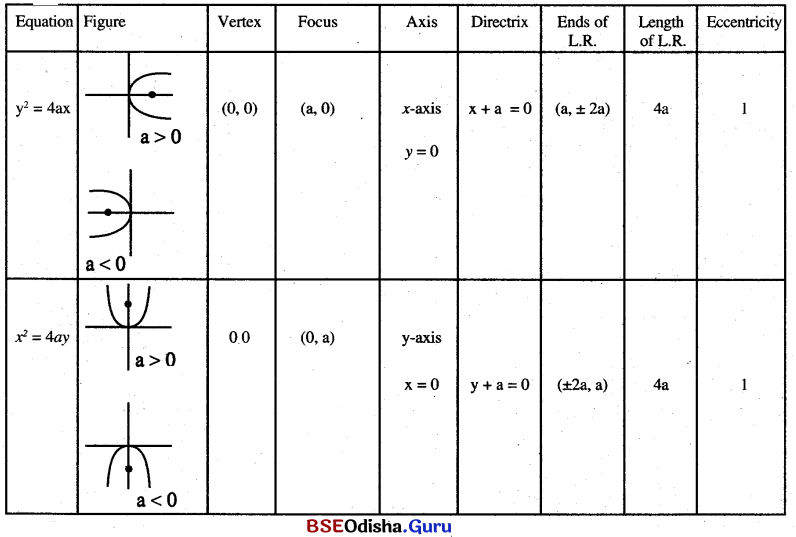
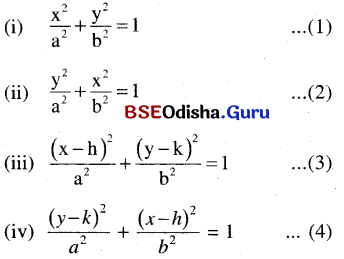
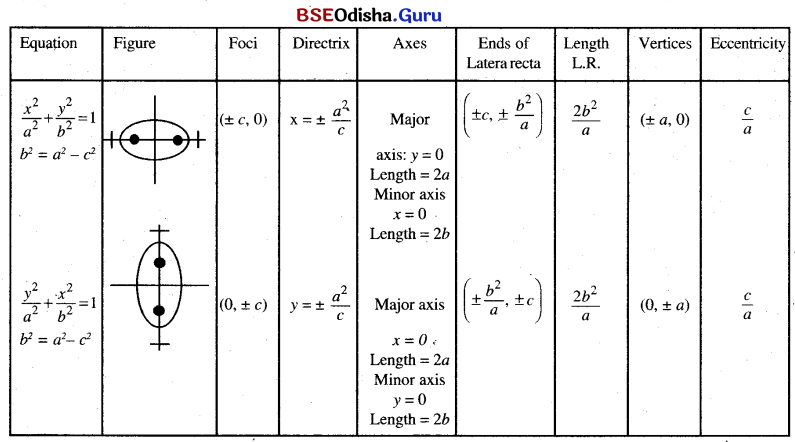
![]()
